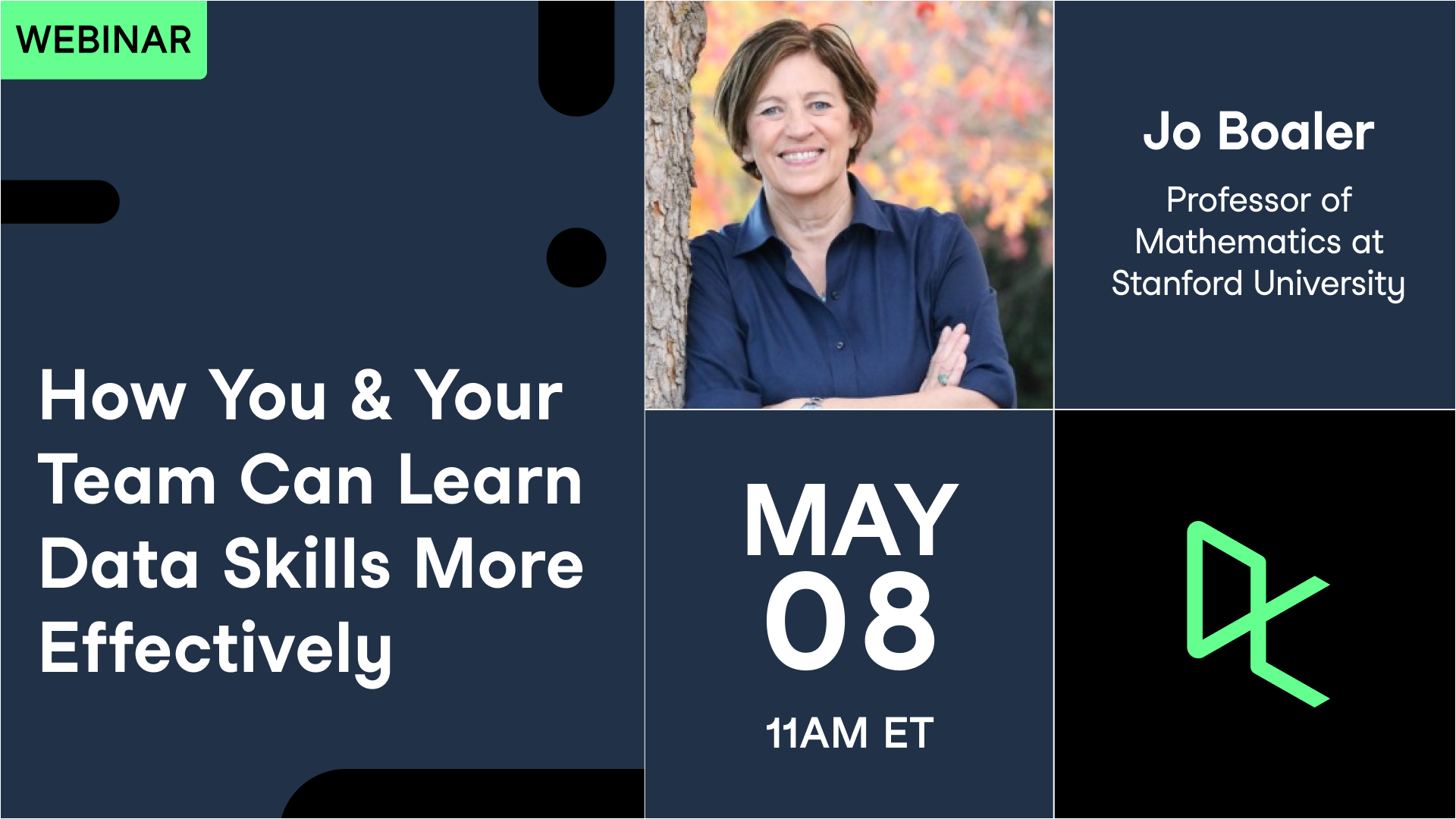Accéder au contenu principalPour les entreprises





Haut-parleurs
Formation de 2 personnes ou plus ?
Donnez à votre équipe l’accès à la bibliothèque DataCamp complète, avec des rapports centralisés, des missions, des projets et bien plus encoreConnexe
webinar
How Top Universities Teach Data Science
In this session you'll learn from leaders at top universities what the essential data skills are for common data roles like data analyst and data scientist, along with essential insights into how to get a data career.webinar
Getting ROI From Your Data Literacy Program
In this session, two seasoned Data Literacy executives walk you through a proven model for scaling data literacy that unlocks business value as your people learn new skills.webinar
Be Data Literate: The Data Literacy Skills Everyone Needs to Succeed
Jordan Morrow outlines how people and organizations can be more data literatewebinar
Empowering Data Teams: How to Approach Upskilling and Continuous Learning
During this webinar, we delve into the challenges of upskilling data teams and provide actionable insights on how to approach it systematically.webinar
Developing a Data Mindset: How to Think, Speak, and Understand Data
In this webinar, Jordan Goldmeier teaches you the secrets of how "data head"'s minds work.webinar
What Your Employees Must Learn to Work With Data in the 21st Century
Here's how data can impact your employees' work and what they need to know.Join 5000+ companies and 80% of the Fortune 1000 who use DataCamp to upskill their teams.
Loved by thousands of companies

